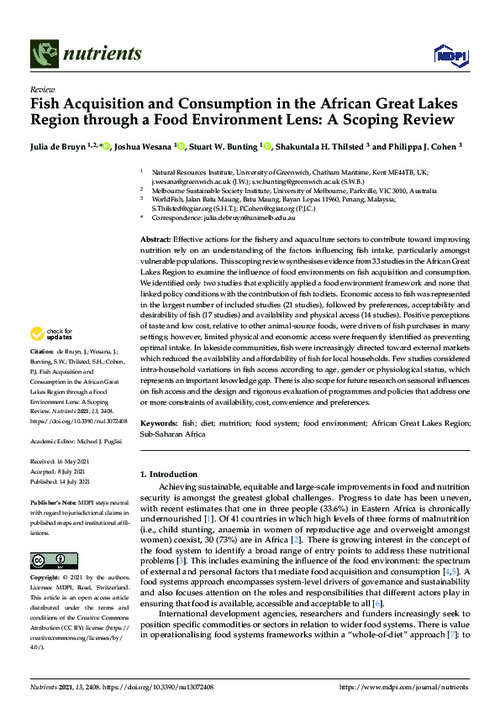Fish Acquisition and Consumption in the African Great Lakes Region through a Food Environment Lens: A Scoping Review

Effective actions for the fishery and aquaculture sectors to contribute toward improving nutrition rely on an understanding of the factors influencing fish intake, particularly amongst vulnerable populations. This scoping review synthesises evidence from 33 studies in the African Great Lakes Region to examine the influence of food environments on fish acquisition and consumption. We identified only two studies that explicitly applied a food environment framework and none that linked policy conditions with the contribution of fish to diets. Economic access to fish was represented in the largest number of included studies (21 studies), followed by preferences, acceptability and desirability of fish (17 studies) and availability and physical access (14 studies). Positive perceptions of taste and low cost, relative to other animal-source foods, were drivers of fish purchases in many settings; however, limited physical and economic access were frequently identified as preventing optimal intake. In lakeside communities, fish were increasingly directed toward external markets which reduced the availability and affordability of fish for local households. Few studies considered intra-household variations in fish access according to age, gender or physiological status, which represents an important knowledge gap. There is also scope for future research on seasonal influences on fish access and the design and rigorous evaluation of programmes and policies that address one or more constraints of availability, cost, convenience and preferences.
Permalink
Date Available
Type
ISSN
2072-6643
Copyright
CC-BY-4.0
Topics
Language